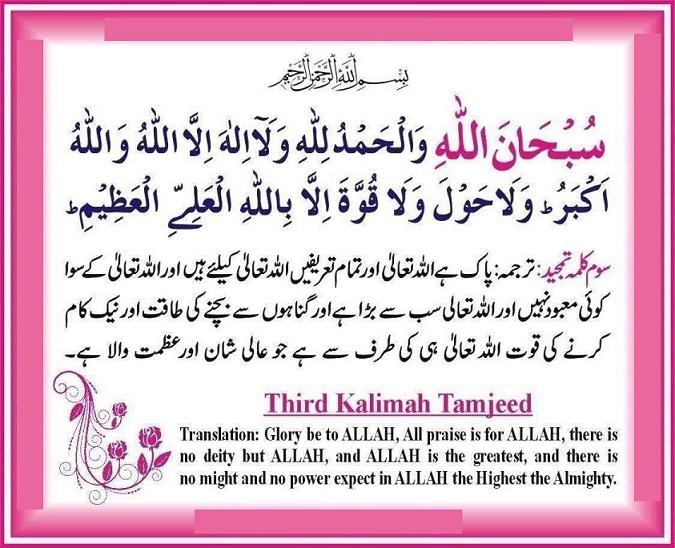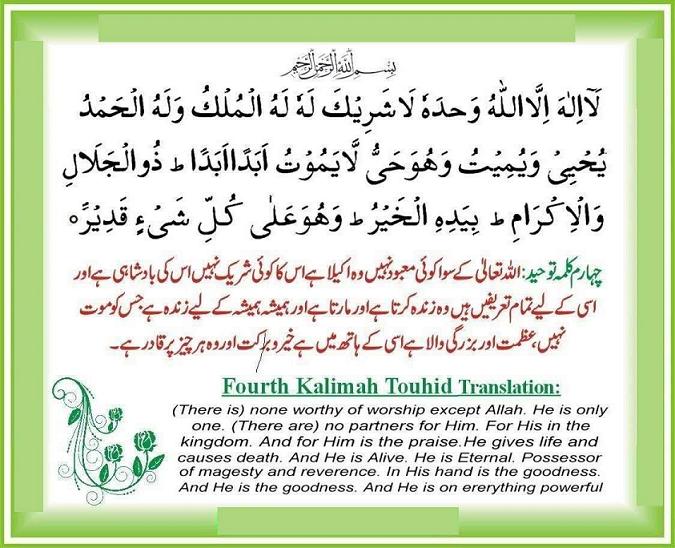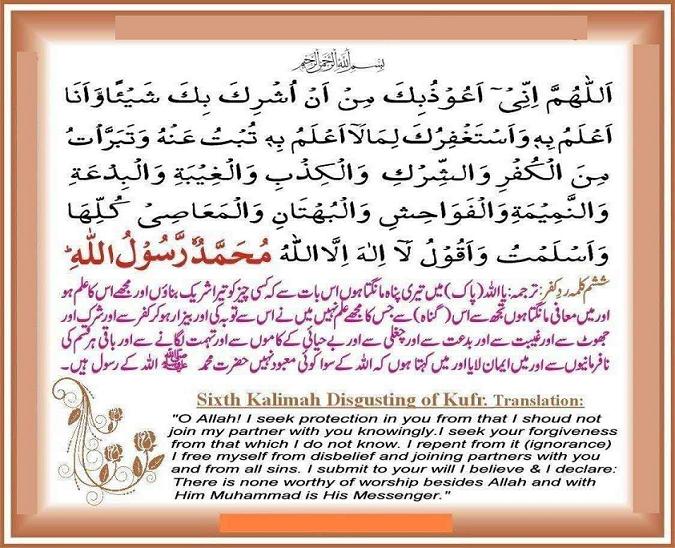Kalma
Kalma, also known as Shahada, is the declaration of faith in Islam. It is the first of the Five Pillars of Islam and is a fundamental belief for Muslims. Kalma consists of two parts: “La ilaha illallah” (There is no god but Allah) and “Muhammadur Rasulullah” (Muhammad is the messenger of Allah). In this article, we will explore the importance of Kalma in Islam.
- The Oneness of God
The first part of the Kalma emphasizes the oneness of God and affirms that there is no deity worthy of worship except Allah. This statement is the cornerstone of Islamic belief and is the foundation of the Islamic faith. By reciting this part of the Kalma, Muslims affirm their belief in the oneness of God and reject all forms of idol worship and polytheism.
- The Prophethood of Muhammad (SAW)
The second part of the Kalma affirms the Prophethood of Muhammad (SAW) and acknowledges him as the final messenger of God. Muslims believe that Muhammad (SAW) was sent by Allah to convey His message to humanity and to guide people towards the path of righteousness. By reciting this part of the Kalma, Muslims affirm their belief in the Prophethood of Muhammad (SAW) and their commitment to follow his teachings.
- The Significance of Faith
The Kalma emphasizes the significance of faith in Islam. Muslims believe that faith is the foundation of all good deeds and is essential for salvation in the Hereafter. By reciting the Kalma, Muslims reaffirm their faith in Allah and the Prophethood of Muhammad (SAW). They also affirm their commitment to follow the teachings of Islam and to live their lives in accordance with the principles of faith.
- The Unity of Muslims
The Kalma serves as a unifying force for Muslims around the world. Regardless of their race, nationality, or cultural background, Muslims recite the same Kalma and affirm the same fundamental beliefs. This unity is a testament to the universality of Islam and its ability to bring people together in the worship of Allah.
- The Role of Kalma in Worship
The Kalma is recited as part of the daily prayers and is an integral part of Muslim worship. It is also recited during the conversion to Islam, as a person declares their faith in Allah and the Prophethood of Muhammad (SAW). The Kalma is also recited during special occasions, such as weddings and funerals, as a reminder of the importance of faith and the unity of Muslims.
Benefits of Reading Kalimas
Reading Kalimas, also known as Shahada, is a common practice among Muslims. The Kalimas consist of six phrases, which affirm the belief in the oneness of Allah and the Prophethood of Muhammad (SAW). In this article, we will explore the benefits of reading Kalimas in Islam.
- Strengthening Faith
Reading Kalimas helps strengthen faith in Allah and the Prophethood of Muhammad (SAW). By reciting the Kalimas, Muslims reaffirm their belief in the fundamental principles of Islam and their commitment to follow the teachings of the Prophet Muhammad (SAW). Regular recitation of Kalimas can help increase one’s faith and provide a sense of spiritual connection with Allah.
- Protection from Evil
Reading Kalimas can provide protection from evil and negative energies. The Kalimas contain powerful statements affirming belief in Allah’s power and protection. Muslims believe that reciting the Kalimas can provide spiritual protection from evil and help them ward off negative thoughts and emotions.
- Peace and Tranquility
Reciting Kalimas can provide a sense of peace and tranquility to the soul. Muslims believe that reading the Kalimas can bring inner peace and help them find solace in Allah’s guidance. By reciting the Kalimas, Muslims seek to strengthen their connection with Allah and find a sense of calm and contentment in their hearts.
- Remembrance of Allah
Reading Kalimas is a form of remembrance of Allah. Muslims believe that remembering Allah is an essential part of worship and can help them stay connected to their faith. Reciting the Kalimas helps Muslims focus their thoughts and attention on Allah and the Prophet Muhammad (SAW), thereby increasing their sense of devotion and spirituality.
- Connection with the Islamic Community
Reading Kalimas is a common practice among Muslims around the world. By reciting the Kalimas, Muslims feel a sense of connection with the Islamic community and the broader Ummah. The Kalimas serve as a unifying force that brings Muslims together in the worship of Allah and the affirmation of their faith.
In conclusion, reading Kalimas is a beneficial practice for Muslims. It helps strengthen faith, provide protection from evil, bring peace and tranquility to the soul, aid remembrance of Allah, and foster a sense of connection with the Islamic community. By reciting the Kalimas, Muslims seek to reaffirm their belief in the fundamental principles of Islam and stay connected to their faith.

1) Kalma Tayyab: Laa ilaaha illal Lahoo Mohammadur Rasool Ullah

2) Kalma Shaadat: Ashahado An Laa ilaaha illal Laho Wahdahoo Laa Shareeka Lahoo Wa Ash Hado Anna Mohammadan Abdo Hoo Wa Rasoolohoo.

3) Kalma Tamjeed: Subhanallahe Wal Hamdulillahe Wa Laa ilaha illal Laho Wallahooakbar. Wala Haola Wala Quwwata illa billahil AliYil Azeem.

4) Kalma Tauheed: Laa ilaha illal Lahoo Wahdahoo Laa Shareekalahoo Lahul Mulko Walahul Hamdo Yuhee Wa Yumeeto Wa Hoa Haiy Yul La Yamooto Abadan Abada Zul Jalali Wal ikraam Beyadihil Khair. Wa hoa Ala Kulli Shai In Qadeer.

5) Kalma Astaghfar: Astaghfirullah Rabbi Min Kullay Zambin Aznabtuho Amadan Ao Khat An Sirran Ao Alaniatan Wa Atoobo ilaihe Minaz Zambil Lazee Aalamo Wa Minaz Zambil Lazee La Aalamo innaka Anta Allamul Ghuyoobi Wa Sattaarul Oyobi Wa Ghaffaruz Zunoobi Wala Haola Wala Quwwata illa billahil AliYil Azeem.

